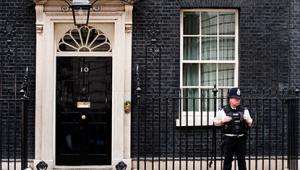16 December 2005
The time is ripe for a wide-ranging debate on the case for devolving more powers to councils, Sir Michael Lyons said this week as he issued the interim report of his inquiry into local government.
Speaking to Public Finance ahead of the report's publication, Lyons insisted his intention was to kick-start discussions on what local government was for and what people expected it to deliver.
'We are on the verge of quite an energetic debate on what should be devolved and what should be administered centrally,' Lyons told PF.
'This is not a simple thing to decide… I'm raising the question about whether we've got too many standards set at national level.'
Lyons was initially commissioned to look solely at funding issues, but his remit was widened in September to include a comprehensive examination of the role and functions of local government. Final recommendations are expected in 2006.
His interim report, published on December 15, says local government should be more than a mere arm of service delivery and have a vital role in creating specific identities for localities.
'If we want vibrant communities, they have to be distinctive and that is about more local choice,' he said.
He added that public backing was already in place. 'People want to see most issues determined locally,' Lyons told PF, adding that policing, education and some areas of transport are the only public service areas people want decided nationally.
The Local Government Association leapt at this conclusion with alacrity. Chair Sir Sandy Bruce-Lockhart said: 'The recognition that councils should be given the freedom to exercise the choice over priorities is a brave step in the right direction. For too long, councils have been constrained by the inability to deliver the services that local people want or need because of overly prescriptive and sweeping national targets.'
There was also a welcome for Lyons' promise to explore ways in which the growing range of pressures on local government, from demographic changes to new legal responsibilities, can be better managed.
Lyons used the publication of his interim report to set out some of the key issues that had emerged from his original work on funding.
He said there was no 'golden key' to unlocking the problems of the finance system. He warned that any reform would mean winners as well as losers and therefore needed to be well understood by the public. Matters were complicated by ignorance about how much money the council tax raised and the true cost of services.
'A public that doesn't understand how much public services cost is going to be frustrated at the cost and local government's inability to deliver,' he said.
The Office of the Deputy Prime Minister hailed the interim report as a 'useful contribution' to the debate on the future of local government.
A spokesman said: 'This publication, together with Sir Michael's forthcoming work on role and function, will feed into the white paper planned for the summer next year.'
Lyons is determined that his report has practical effects: 'I do not want to be another Frank Layfield and bring out a report that is commended but not acted upon.'
PFdec2005


















